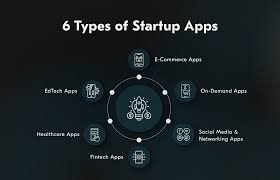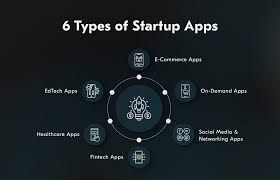The healthcare industry is going through a digital revolution. From telemedicine consultations to AI-driven diagnostics, mobile apps are reshaping the way patients and doctors interact. For startups entering the healthcare space, this presents both an opportunity and a challenge. Building a high-quality healthcare app requires not only technical expertise but also a deep understanding of healthcare regulations, patient privacy, and usability.
That’s where a healthcare app development company comes in. Partnering with an experienced team can help startups save time, reduce risks, and create an innovative product that truly makes a difference. In this blog, we’ll explore the reasons why startups should collaborate with a healthcare app development company, the benefits they gain, and how this partnership can turn a simple idea into a successful healthcare solution.
The Rise of Healthcare Apps
The demand for healthcare apps has skyrocketed over the past decade. Patients now prefer virtual consultations, remote monitoring, and easy access to their health data. According to reports, the global healthcare mobile app market is expected to reach $400 billion by 2028, driven by telehealth adoption, wearable technology, and growing health awareness.
For startups, this trend offers enormous potential. But tapping into this market isn’t easy. It requires expertise in:
- Healthcare compliance (HIPAA, GDPR, etc.)
- User-friendly UI/UX tailored for patients and doctors
- Data security and privacy
- Integration with medical devices and hospital systems
- Advanced features like AI, IoT, and telemedicine
A healthcare app development company specializes in all these areas, helping startups enter the market with confidence.
Challenges Startups Face in Healthcare App Development
Before understanding the role of a healthcare app development company, it’s important to highlight the common challenges startups face when building healthcare apps:
- Regulatory Compliance
Healthcare apps must follow strict rules like HIPAA in the U.S. or GDPR in Europe. Startups often lack the legal and technical expertise to ensure compliance. - Data Security
Healthcare apps deal with sensitive patient data. Without proper encryption and security protocols, startups risk data breaches that could ruin their reputation. - High Development Costs
Building a healthcare app from scratch requires specialized developers, which can be expensive if handled in-house. - Integration with Existing Systems
Hospitals and clinics use complex systems. Ensuring smooth integration is often a big technical challenge. - Scalability
Startups want their apps to grow quickly, but poor architecture in the early stages can limit scalability.
These challenges can slow down startups or even cause failure. Partnering with a healthcare app development company ensures these problems are addressed from the start.
Why Startups Should Partner with a Healthcare App Development Company
Let’s explore the key benefits that startups gain by working with a healthcare app development company:
1. Access to Industry Expertise
A healthcare app development company understands the unique challenges of the healthcare sector. They know how to design apps that meet compliance requirements while still being user-friendly. Their experience allows startups to avoid costly mistakes.
2. Faster Time-to-Market
Startups need to launch quickly to stay ahead of competitors. A healthcare app development company already has frameworks, tools, and skilled teams in place, which accelerates development.
3. Cost-Effective Solutions
Hiring an in-house development team can be expensive. By outsourcing to a healthcare app development company, startups can save on recruitment, training, and infrastructure costs.
4. Focus on Core Business
Instead of worrying about technical hurdles, startup founders can focus on business growth, marketing, and customer acquisition while leaving the tech side to experts.
5. Advanced Technology Integration
From wearable devices to AI-based diagnostics, healthcare app development companies are skilled at integrating cutting-edge technologies into apps. This ensures startups deliver innovative solutions.
6. Strong Data Security
A professional healthcare app development company builds apps with advanced encryption, secure cloud storage, and multi-layered security measures to protect sensitive data.
7. Customization and Scalability
Startups often need flexible solutions that can grow as they expand. These companies create scalable architectures that can handle increasing user demand.
Features Startups Can Expect from a Healthcare App Development Company
When startups collaborate with a healthcare app development company, they gain access to essential features that can set their apps apart:
- Telemedicine Integration: Video consultations, chat, and appointment booking.
- EHR/EMR Integration: Access to electronic health records.
- Wearable Connectivity: Syncing with devices like smartwatches or glucose monitors.
- AI-Powered Features: Symptom checkers, personalized health recommendations.
- Patient Portals: For medical history, test results, and prescriptions.
- Doctor Dashboards: Tools for scheduling, managing patients, and accessing records.
- Secure Payments: For consultations and healthcare services.
- Push Notifications: Reminders for medication, appointments, or health tips.
By offering these advanced features, a healthcare app development company ensures startups deliver real value to their users.
Case Study Example: How Startups Benefit
Imagine a small startup aiming to create a mental health app. The founders have a great idea but lack technical skills. If they try to hire an in-house team, it would take months and cost a fortune.
Instead, they partner with a healthcare app development company. The company provides:
- A secure teletherapy feature with video calls
- HIPAA-compliant data storage
- AI-based chatbots for mental health support
- A simple, calming user interface
As a result, the startup launches within six months, gains thousands of users, and secures funding from investors. This is the kind of transformation possible when startups collaborate with experts.
Future Trends a Healthcare App Development Company Can Help With
Startups that want to remain competitive need to embrace future technologies. A healthcare app development company can guide them through:
- Artificial Intelligence (AI) – Predictive analytics, diagnostic assistance, and personalized treatment.
- Internet of Medical Things (IoMT) – Wearables and connected devices tracking real-time health data.
- Blockchain in Healthcare – Securing patient records with transparent and tamper-proof systems.
- AR/VR in Healthcare – Virtual reality for training doctors or helping patients with therapy.
- Remote Patient Monitoring (RPM) – Continuous monitoring of patients with chronic diseases.
By staying updated with trends, startups can stand out in a competitive market.
Steps for Startups to Choose the Right Healthcare App Development Company
Not every company is the same. Startups need to choose carefully. Here’s a checklist:
- Check Experience in Healthcare Apps: Do they have relevant projects?
- Review Case Studies & Portfolio: See if they’ve worked with healthcare clients.
- Ask About Compliance: Ensure they understand HIPAA, GDPR, and local regulations.
- Evaluate Technology Stack: Are they using modern tools and frameworks?
- Look for Scalability: Can the app grow with your startup?
- Check Communication: Clear updates and transparency are essential.
- Assess Support & Maintenance: Apps need long-term support after launch.
Following these steps ensures startups find the right partner for their journey.
Conclusion
For startups in the healthcare space, success depends on creating secure, user-friendly, and compliant apps that meet patient and doctor needs. Trying to build such apps alone is risky, expensive, and time-consuming. By partnering with a healthcare app development company, startups can focus on their vision while experts handle the technical side.
From faster time-to-market and cost savings to advanced features and compliance, the benefits are undeniable. Whether it’s telemedicine, wearable integration, or AI-driven solutions, these companies empower startups to bring their healthcare innovations to life.




